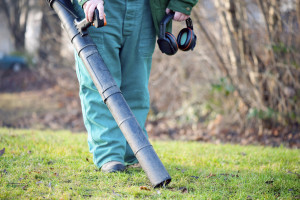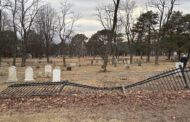by Rosanne Graef, Past President – WENA
This Month’s Topic: Sound Off!
Fingernails scraping a chalkboard, a single buzzing mosquito in your bedroom at night, the drip-drip-drip of a leaky faucet…
Most people find these annoying, but many sounds are actually noise which in its volume, pitch or rhythm can adversely affect people’s health and quality of life. Prolonged exposure to noise can result in hearing loss, elevated stress levels, mood swings, hypertension, depression, lost sleep, reduced productivity and slowed learning. Most often these kinds of noises are created by humans and inflicted on others, as well as ourselves.
In a paper entitled “The Perceived Annoyance of Urban Soundscapes”, Adam Craig of Glasgow Caledonia University, groups the possible responses to noise into four categories depending on the nature of the noise and the degree of arousal it elicits in the hearer:
*positive/high = excitement, interest, attentiveness, energy
*negative/high = agitation, stress, fear, anxiety
*positive/low = calm, relaxation, reassurance, tranquility
*negative/low = boredom, fatigue, gloom, lifelessness
What does all this have to do with the West End? Our urban soundscape is not immune to noise pollution. As we enter the warmer months, many will be out driving a variety of land and water vehicles; using motorized landscaping equipment; doing construction projects and, of course, partying.
At the same time, others will be trying to relax in their yards, sleeping with the windows open, eating al fresco and gardening. These different interests can sow the seeds of neighborhood conflict.
One difficulty in controlling noise pollution is that most of it is done anonymously. Who sets off fireworks at 2 a.m. in Harbor View Park in May and June? That car alarm that has beeped 122 times, has that really deterred a theft or just driven the neighbors nuts?
There are times, though, when we can and should control the noise we create in order to foster a civil and caring community. A sense of community is critical to a quiet, safe and enjoyable neighborhood. When neighbors don’t know or don’t care about each other, noise problems can destroy everyone’s quality of life.
Getting to know the people around you – do they work nights, have a new baby, need peace and quiet due to an illness or injury – and modifying your behavior accordingly can go a long way. And, of course, reciprocity helps.
Negative noises noted by West Enders are:
“Leaf blowers – they are back and are blowing dust and winter debris on everything and into people’s houses. Not only are they obnoxious on the sound level, but they pollute with dust and carbon emissions. They should be banned in residential neighborhoods.”
“Loud ‘music’ emanating from cars and houses.”
“Tolerance for loud/obnoxious behavior (drunk or otherwise) encourages lack of common courtesy. The ‘Party Town’ image has been taken to excess.”
On the positive side, there are sounds people enjoy: kids playing on the Reiche playground, fog horns, tug boat whistles, bird songs, wind in the leaves, distant sounds of trains, rain on the windows, “and the big red beasts that howl all through the city night and day as if prowling for prey. All part of the urban symphony.”
Where does “Turkey in the Straw” played repeatedly by the Good Humor truck fit in? Guess that one’s a matter of perspective.







1 Comments
Pingback: Happy Trails - Rosanne Says Farewell to La Vida Local - The West End News